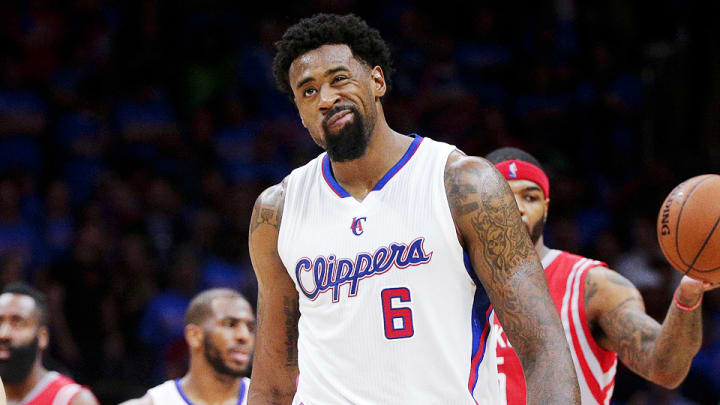DeAndre Jordan saga won't change NBA free agency moratorium rules

LAS VEGAS — DeAndre Jordan's broken verbal agreement with the Mavericks will not bring immediate changes to the NBA's free agency moratorium.
NBA commissioner Adam Silver told reporters Tuesday that Jordan's highly publicized free agency reversal generated discussion, but no proposed rule changes, at the league's annual Board of Governors meeting.
"The moratorium was discussed," Silver said. "Nobody had a great idea, frankly, in terms of how to change it."
The 26-year-old Jordan, who spent the first seven years of his career with the Clippers, reached a verbal agreement with the Mavericks on July 3. That agreement was made during the NBA's moratorium period, which opens on July 1 and allows teams and players to strike handshake deals that can't be officially consummated until July 9. Once the moratorium was lifted, Jordan shocked Dallas by re-signing with L.A. on a four-year, $87 million deal, leaving Mavericks owner Mark Cuban scrambling to make other plans.
Mavericks owner Mark Cuban tells his side of the DeAndre Jordan signing
Although Jordan isn't the first player to change his mind during the moratorium period, his case drew extra attention because: 1. He was an All-NBA selection who led the league in rebounding last season, 2. The Mavericks were left hanging for days, and 3. His reversal played out in real time on social media and restored the Clippers' championship hopes. To be clear, Jordan didn't break any official league rules by going back on his verbal agreement with the Mavericks, but his conduct was unusual enough that Mavericks forward Chandler Parsons referred to it as "unprofessional" and "unethical" in an interview with ESPNDallas.com.
Although Silver seemed to empathize with Jordan's change of heart, given the stakes, he acknowledged that Jordan's reversal tested a system that relies on dozens of handshake agreements every year.
"It wasn't a great look," Silver said. "It's not what we want to see happen in the moratorium period. It wasn't created so players could enter into, in essence, oral agreements only to have those agreements superseded by binding agreements. ... But there was a breakdown in the system to a certain extent [because] teams come to rely on those assurances. ... There is no suggestion that the Clippers did not have a right to continue talking to him. But it leaves the Mavericks in a difficult position."
The Jordan affair itself appears closed. Silver said that Cuban has "moved on" and that the Clippers didn't violate any league rules by re-engaging with Jordan following his verbal commitment.
"As [Jordan] said, I'm not sure it's his proudest moment either," Silver said, "but he was exercising a right that he appropriately has."
• MORE NBA: League could ditch division winner-based playoff seeding
Some media observers argued that a shorter moratorium period could limit the damage done by a player's change of heart. This year, the Mavericks theoretically could have enjoyed greater flexibility and responsiveness if they weren't stuck waiting on Jordan for nearly a week. Going forward, the wait time could wind up being even longer, as the moratorium is set to last until July 11 in 2016 and 2017.
The moratorium period is designed to facilitate extensive and fair conversations between players and teams, who aren't officially allowed to communicate prior to July 1. Silver explained in an NBA TV interview earlier this week that the moratorium is necessary to prevent under-the-table agreements being reached prior to the start of free agency that then get announced as soon as free agency officially opens.
Like the growing outside consensus, Silver said that the Board of Governors did engage in "some discussion" on shortening the moratorium, and that he has received "a sense" from players and agents that quicker would be better. One reason: if a star uses the entire moratorium to make his decision, a backlog builds among secondary and tertiary players who are waiting for the biggest dominoes to fall first.
"It's an imperfect system and we still think we're striking the right balance between teams having the opportunity to talk to players when they become free agents and creating certainty at some point when contracts are entered into," Silver said. "[But] when teams can't sign the star players, and they're building their rosters around them, it's a hold up for a lot of other players in the league who teams are telling they can't make commitments to them either during that interim period. ... It may be that we do need to take a fresh look and shorten [the moratorium] for a few days."
Any proposed change to the moratorium's structure or timeline agreed to by the NBA's Board of Governors would be subject to approval by the National Basketball Players Association.
